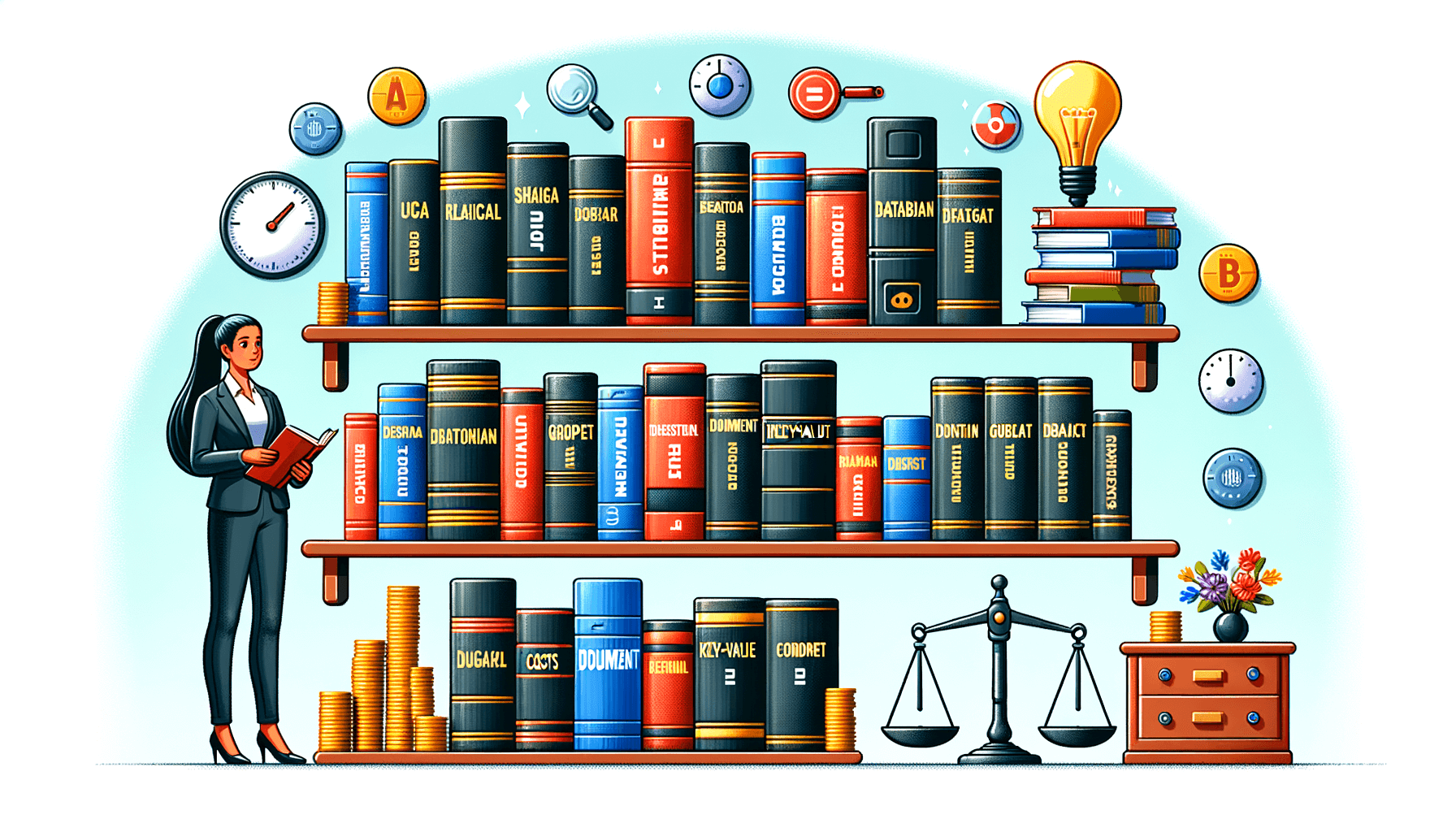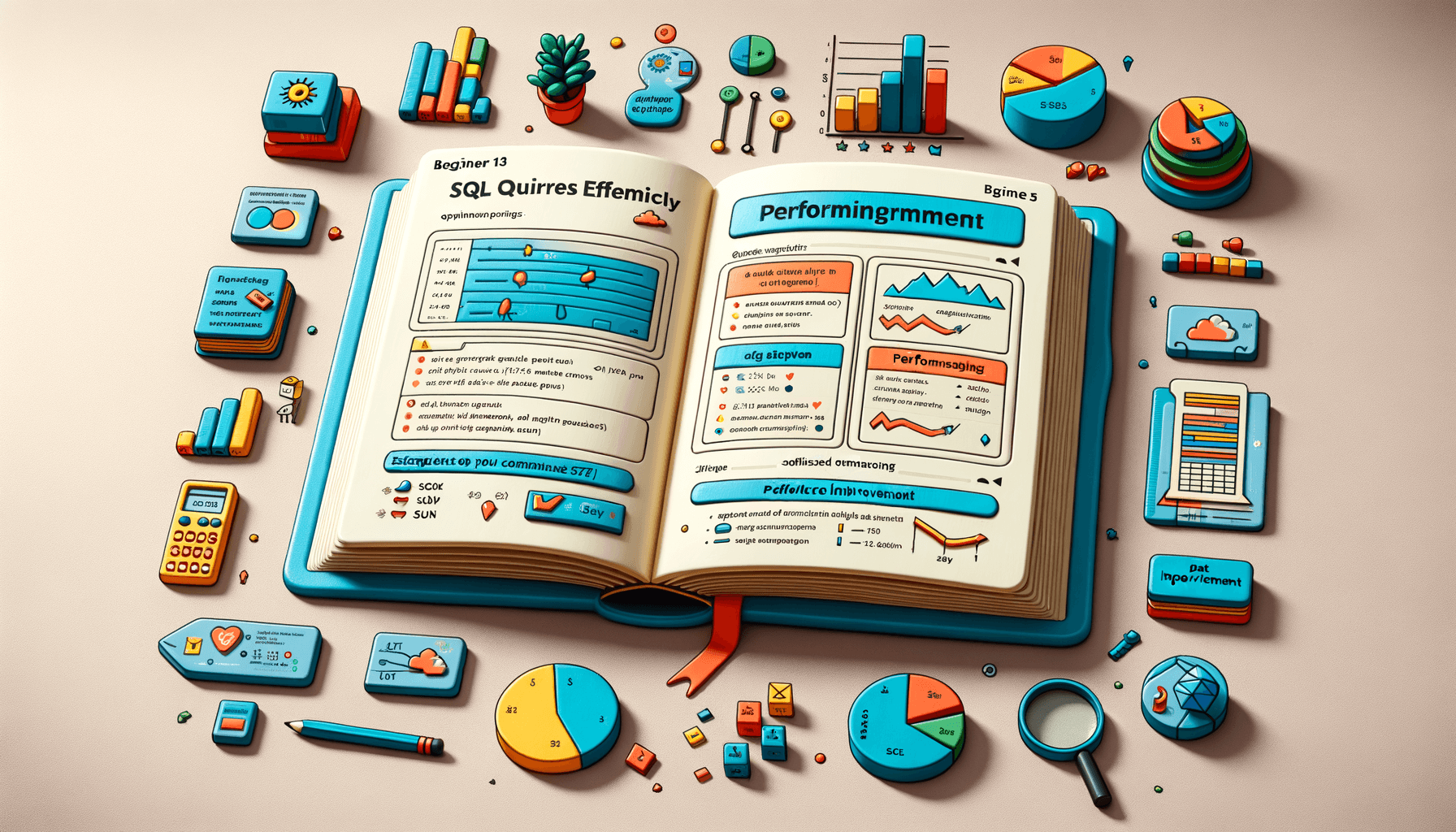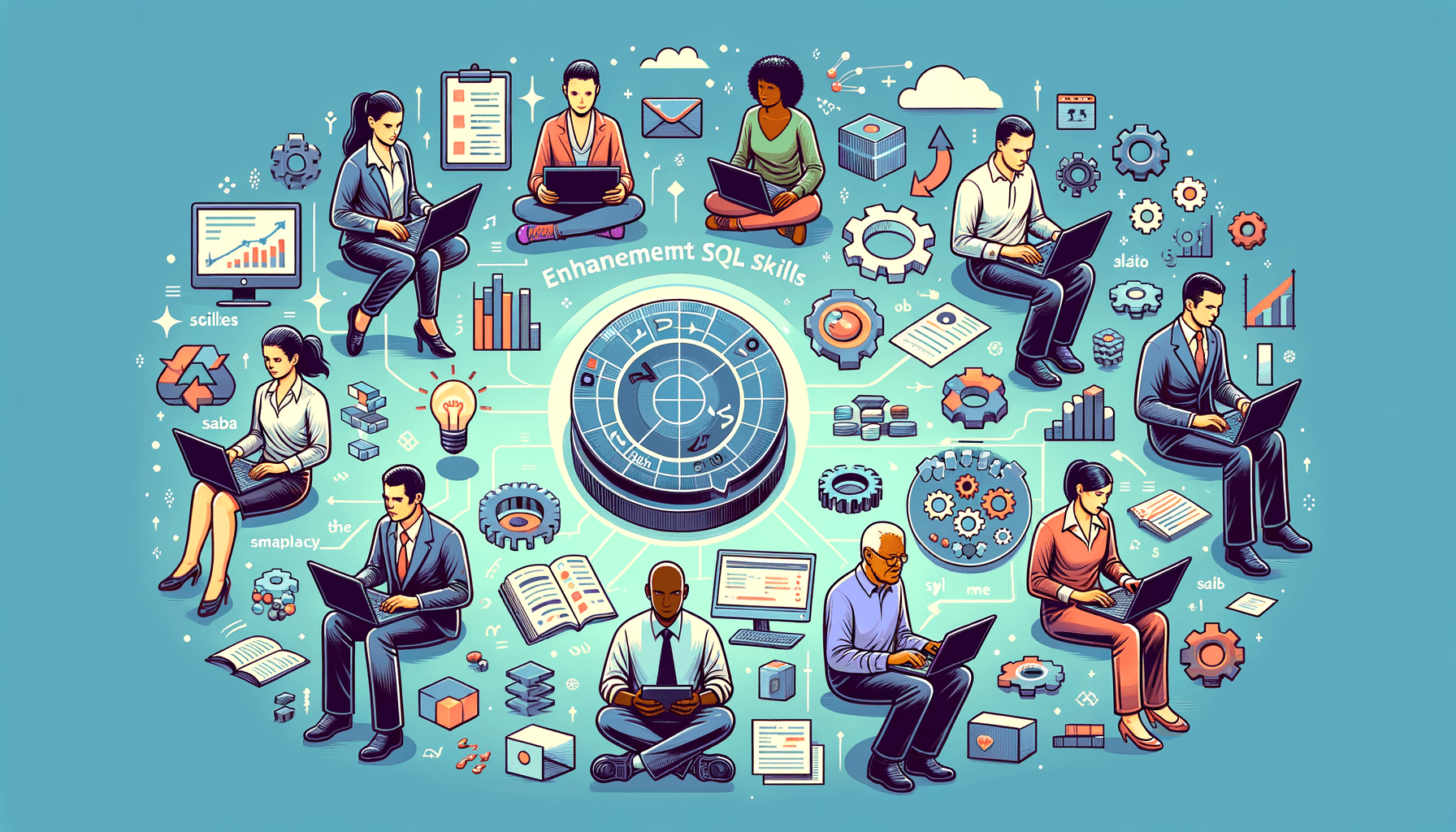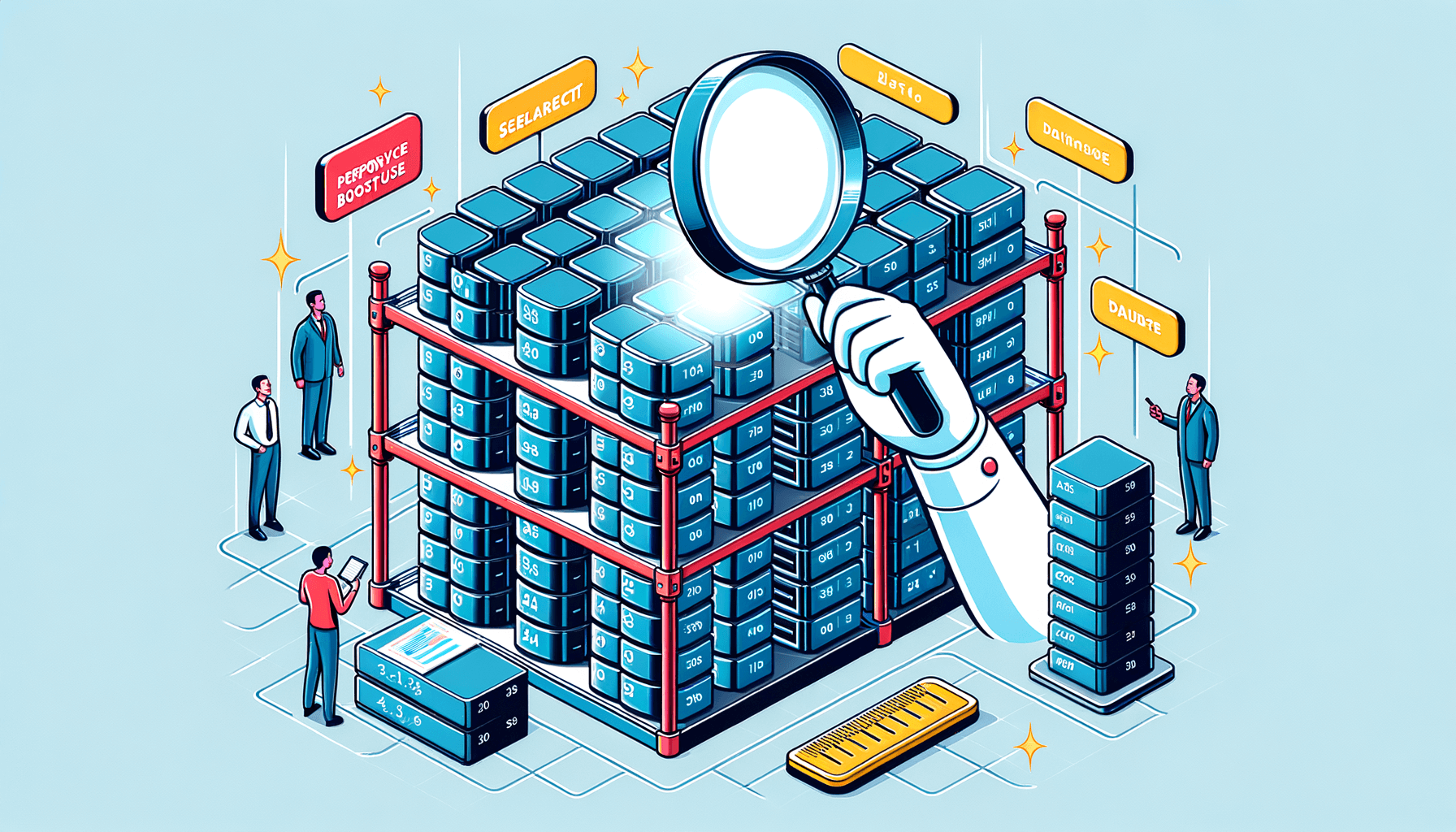A big variety of articles and resources

Choosing the Right Database Type Software for Your Business Needs
 Sia Author and Instructor
Learn SQL
Sia Author and Instructor
Learn SQL
8 minute read
Choosing the right database software is crucial for your business. With so many options, it can be tough to decide. This article will help you understand different types of databases and how to pick the best one for your needs.
Key Takeaways
- Understand the differences between relational, NoSQL, and NewSQL databases.
- Consider your business needs like data volume, transaction processing, and data integrity.
- Compare performance metrics such as read/write speeds, latency, and resource use.
- Think about security features including access controls, encryption, and regulatory compliance.
- Factor in costs like licensing, maintenance, and scalability when choosing a database.
Understanding Different Database Types
Relational Databases
Relational databases are structured to recognize relations among stored items of information. They use tables to store data and SQL for querying. These databases are ideal for complex queries and transactions. They ensure data integrity and support ACID properties, making them reliable for financial applications.
NoSQL Databases
NoSQL databases are designed for unstructured data and can handle large volumes of information. They are highly scalable and flexible, making them suitable for big data applications. Unlike relational databases, NoSQL databases do not require a fixed schema, allowing for more dynamic data models.
NewSQL Databases
NewSQL databases aim to combine the benefits of both relational and NoSQL databases. They offer the scalability of NoSQL while maintaining the ACID properties of relational databases. This makes them a good choice for applications that need both high performance and data integrity.
When choosing a database type, it's crucial to consider your specific business needs and the nature of your data. Each type has its strengths and weaknesses, so understanding these can help you make an informed decision.
Evaluating Business Requirements for Database Selection
Data Volume and Scalability
When choosing a database, we must consider how much data we will handle and how it will grow over time. A database that scales well can handle increasing amounts of data without losing performance. For example, if our business expects rapid growth, we need a database that can expand easily.
Transaction Processing Needs
We also need to think about how many transactions our database will process. Some databases are better for handling lots of small transactions quickly, while others are designed for fewer, larger transactions. Knowing our transaction needs helps us pick the right database.
Data Consistency and Integrity
Keeping our data accurate and reliable is crucial. Some databases ensure that all data is consistent and follows rules, which is important for businesses that need precise information. Choosing a database that maintains data integrity helps us avoid errors and ensures our data is trustworthy.
Evaluating our business needs carefully helps us choose the best database, ensuring it meets our data volume, transaction, and consistency requirements.
Comparing Performance Metrics Across Database Types
Read and Write Speeds
When we look at read and write speeds, it's clear that different databases have their own strengths. Relational databases often excel in read-heavy operations due to their structured nature. On the other hand, NoSQL databases can offer faster write speeds, especially when dealing with large volumes of unstructured data. Choosing the right database depends on whether your business needs faster reads or writes.
Latency and Throughput
Latency and throughput are critical metrics for any database system. Relational databases usually have lower latency for complex queries because of their optimized indexing. However, NoSQL databases can handle higher throughput, making them ideal for applications requiring rapid data ingestion. It's essential to balance these factors based on your specific needs.
Resource Utilization
Resource utilization varies significantly across database types. Relational databases often require more CPU and memory resources due to their complex query processing. In contrast, NoSQL databases are designed to be more resource-efficient, especially in distributed environments. Understanding these differences can help you make an informed decision about which database type to use.
In our mini course: sql data manipulation tools, meet Eric Vanier, a SQL and database performance specialist with 25+ years experience. He offers a free SQL course. Subscribe for more.
Security Considerations in Database Type Software
When selecting a database type software, it is crucial to consider security aspects. Access controls play a vital role in determining who can view or modify data within the database. Encryption standards ensure that data is protected from unauthorized access. Additionally, compliance with regulations is essential to meet legal requirements and safeguard sensitive information. Ensuring robust security measures is paramount to protect the integrity of the data stored in the database.
Cost Implications of Various Database Types
Licensing Fees
When choosing a database, one of the first things to consider is the licensing fees. These fees can vary greatly depending on the type of database software you select. For instance, some relational databases come with high upfront costs, while many NoSQL options offer more affordable, subscription-based pricing. Understanding these costs is crucial for budgeting and long-term planning.
Maintenance Costs
Maintenance costs are another important factor. Relational databases often require more ongoing maintenance due to their complexity. This can include regular updates, backups, and performance tuning. On the other hand, NoSQL databases might have lower maintenance needs but could still require specialized skills for optimal performance. It's essential to weigh these costs against the benefits each type of database offers.
Scalability Expenses
Scalability is a key consideration for growing businesses. Relational databases can become expensive to scale as data volume increases. NoSQL databases, however, are designed to handle large amounts of data more efficiently, often at a lower cost. Evaluating scalability expenses helps ensure that your database solution can grow with your business without breaking the bank.
Choosing the right database involves balancing initial costs, ongoing maintenance, and scalability expenses. Each type of database has its own set of financial implications that must be carefully considered to meet your business needs.
Future Trends in Database Type Software
Cloud Integration
As we move forward, cloud integration is becoming a major trend in database software. Businesses are increasingly adopting cloud-based solutions due to their flexibility and cost-effectiveness. Cloud databases offer scalable resources that can be adjusted based on demand, making them ideal for growing companies. Additionally, cloud services often come with built-in security features, reducing the burden on in-house IT teams.
Artificial Intelligence and Machine Learning
Artificial Intelligence (AI) and Machine Learning (ML) are revolutionizing how we manage and analyze data. These technologies enable databases to learn from data patterns, improving query performance and predictive analytics. For instance, AI can help in automating routine tasks, freeing up human resources for more strategic activities. This trend is particularly beneficial for businesses looking to gain insights from large datasets quickly.
Edge Computing
Edge computing is another emerging trend that is reshaping the database landscape. By processing data closer to its source, edge computing reduces latency and improves real-time data processing. This is especially useful for applications requiring immediate data analysis, such as IoT devices and autonomous vehicles. Edge computing also helps in reducing the load on central servers, making the entire system more efficient.
As we look ahead, it's clear that these trends will continue to shape the future of database type software, offering new opportunities and challenges for businesses.
The future of database software is evolving rapidly, with new trends emerging every day. From AI-driven databases to cloud-based solutions, the landscape is changing fast. Stay ahead of the curve by exploring our courses and resources. Visit our website to learn more and start your journey towards mastering the latest in database technology.
Conclusion
Choosing the right database software for your business is a critical decision that can impact your operations and growth. By understanding the different types of databases, such as relational, NoSQL, and in-memory databases, you can make an informed choice that aligns with your specific needs. Each type has its own strengths and weaknesses, so it's important to consider factors like data structure, scalability, and performance. Remember, the best database for your business is one that not only meets your current requirements but also scales with your future growth. Take the time to evaluate your options carefully, and don't hesitate to seek expert advice if needed. With the right database, you can ensure your business runs smoothly and efficiently.
Frequently Asked Questions
What are the main types of databases?
The main types of databases are relational databases, NoSQL databases, and NewSQL databases. Each type has its own strengths and weaknesses.
How do I choose the right database for my business?
To choose the right database, you need to understand your business needs. Consider factors like data volume, scalability, transaction processing, and data consistency.
What is the difference between relational and NoSQL databases?
Relational databases use structured tables and are good for complex queries. NoSQL databases are more flexible and can handle large amounts of unstructured data.
Why is database security important?
Database security is important to protect sensitive information from unauthorized access. It includes measures like access controls, encryption, and compliance with regulations.
Are there cost differences between database types?
Yes, different database types have different costs. You need to consider licensing fees, maintenance costs, and scalability expenses when choosing a database.
What are the future trends in database technology?
Future trends in database technology include cloud integration, the use of artificial intelligence and machine learning, and the growth of edge computing.
Related Articles

A Beginner's Guide to Running a SQL Query Efficiently
8 minute read

Effective Ways to Enhance Your Skills with SQL Practice
9 minute read





